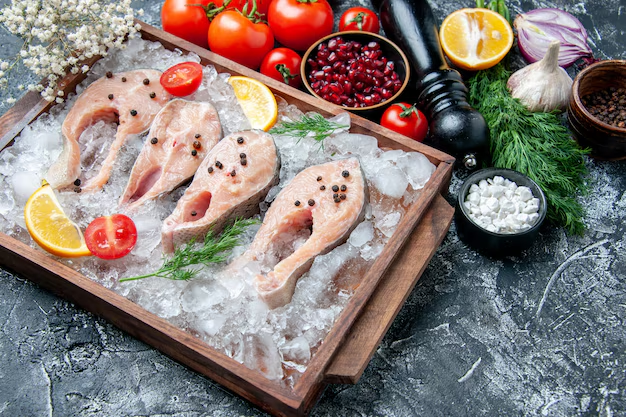Marinating Magic: How Long Is Safe to Marinate Chicken in the Refrigerator?
Marinating chicken is a staple culinary trick for elevating flavors, tenderizing meat, and making meals memorable. Whether preparing for a backyard barbecue or a favorite family dish, knowing the right marinating time is essential for both taste and safety. It begs the question: how long can chicken safely marinate in the refrigerator? Let’s explore this topic in depth and highlight key considerations for marinating chicken effectively and safely.
🕵️♂️ The Basics of Marinating Chicken
What is Marination?
Marination is the process of soaking foods in a seasoned liquid before cooking. This liquid, known as a marinade, is typically made up of three components: acid (like vinegar or lemon juice), oil, and flavor enhancers (such as herbs and spices). Each ingredient plays a crucial role in tenderizing the meat, infusing it with flavor, and preserving its moisture.
Why Marinate?
Marinades are beloved not just for taste enhancement but also for the way they change the texture of meat. The acid or enzyme in the marinade breaks down protein structures, making the chicken tender. At the same time, the flavors meld into the meat, enhancing the overall taste profile.
⏳ Marinating Time Limits: What’s Safe?
Short-Term Marination (Less Than 6 hours)
If you’re short on time, even marinating chicken for as little as 30 minutes can significantly enhance the flavor. However, for a good balance without overwhelming acidity or saltiness, 2-6 hours is optimal for most chicken cuts. This allows enough time for the flavors to penetrate without the risk of the meat becoming mushy.
Ideal Marination Period (6 to 24 hours)
Marinating chicken for up to 24 hours is often cited as the sweet spot. During this time, the chicken absorbs the full complexity of the marinade, leading to a richer flavor profile. This timeframe ensures tenderness and a well-seasoned taste without compromising the chicken's natural texture.
Extended Marination (24 to 48 hours)
While some cuts, especially dark meat like thighs, can handle marinating for up to 48 hours, caution is advised. Overextended marination may cause the proteins to break down excessively, resulting in an unappealing, mushy texture. This is mainly due to high acidity levels in some marinades.
Over-Marination Risks (Beyond 48 hours)
Going beyond 48 hours can disrupt both texture and flavor. The acids or enzymes can render the chicken overly soft and chewy, while the marinade flavors might become overwhelming. It’s also worth noting that prolonged marination does not necessarily translate to better tasting meat.
🍽️ Related Subtopics: Flavor Profiles and Techniques
Choosing the Right Marinade
The choice of marinade significantly affects the final dish. Typical flavor bases might include:
- Citrus-Based Marinades: Perfect for a zesty, fresh taste; ideal for summer dishes.
- Herbal and Spicy Blends: Great for enhancing robust or exotic dishes with fresh herbs like rosemary, thyme, or chili.
- Asian-Inspired Marinades: Soy sauce, ginger, and garlic create a signature umami experience.
Marinating Tips for Success
- Use Non-Reactive Containers: Glass or plastic containers prevent chemical reactions with acidic ingredients.
- Poke Holes or Score Meat: This technique allows the marinade to penetrate further into the chicken.
- Refrigeration is Key: Always marinate chicken in the fridge to inhibit bacterial growth.
Ensuring Food Safety
To ensure chicken marination remains safe:
- Avoid Cross-Contamination: Use separate utensils and cutting boards for raw chicken and vegetables.
- Do Not Reuse Marinades: Boil leftover marinade for at least five minutes if you plan to repurpose it as a basting or dipping sauce.
- Observe Expiration Dates: Even marinated, chicken should not be kept in the refrigerator longer than the typical shelf life of fresh poultry.
🧑🍳 Practical Takeaways for Home Cooks
For an easy reference, here’s a concise summary of marination tips:
📝 Quick Marination Tips:
- ⏰ Marinate for 2-6 hours for quick flavor enhancement.
- ⏱️ 6-24 hours aligns with optimal taste and tenderness.
- ⛔ Limit to 48 hours maximum to avoid texture issues.
- 🥄 Use suitable ingredients based on flavor goals (e.g., citrus for zest, herbs for depth).
- 🧼 Prioritize food safety by marinating in the fridge and avoiding cross-contamination.
🌟 Exploring More with Marinades
Uncommon Ingredients to Try
Enhance your marinade repertoire with unique additions:
- Buttermilk: Ideal for adding a Southern-style tenderness and tang, especially for fried chicken.
- Coconut Milk: Infuses a creamy, tropical flavor ideal for Thai or Caribbean dishes.
Time-Savig Tips for Busy Schedules
- Pre-Make and Freeze: Prepare marinades in bulk to store in the freezer. This allows for easy use when needed.
- Try Vacuum-Sealed Bags: These can speed up marinating time due to increased surface contact.
Customizing Marinades to Suit Dietary Needs
For those watching their sugar, sodium, or calorie intake, consider:
- Low-Sodium Soy Sauce or Tamari: For those with sodium restrictions.
- Balsamic or Apple Cider Vinegar: Lower sugar compared to some other acidic ingredients.
- Natural Sweeteners or Fruits: Such as honey or pineapple for natural sweetness.
✨ Balancing Safety and Flavor
In conclusion, marinating chicken is a balance of time, ingredients, and technique, each playing a vital role in achieving culinary success. Understanding the safe and effective marination period ensures both a delightful dining experience and adherence to food safety guidelines. By tailoring marination practices to suit individual needs and preferences, home cooks can continue to innovate and enjoy this essential cooking process.
Empower your cooking adventures with this understanding, ensuring every bite is as safe and flavorful as it is delicious. Enjoy your culinary journey with confidence and creativity, and unlock the full potential of marinating magic!

